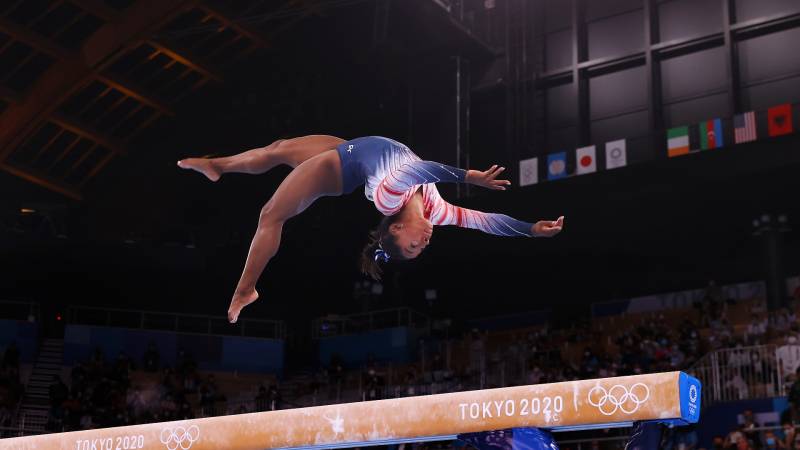The 2020 Olympics in Tokyo have been described as the “strangest” or “weirdest” in Olympic history. The pandemic delayed the games for a year and limited how the world’s biggest sporting tournament could play out–no spectators, lots of covered faces, social distancing and players isolated from others. The games also roused a plethora of debates ranging from questions over player uniforms to questions about identity to whether they should have been held at all in a country with low coronavirus vaccination rates. In this hour of Forum, we look back at the Tokyo Olympics and explore the triumphs, and challenges of putting on the games in the middle of a pandemic and also dive into California’s influence on the games.
What Will the Tokyo Olympics Legacy be?

TOKYO, JAPAN - AUGUST 03: Simone Biles of Team United States in action during the Women's Balance Beam Final on day eleven of the Tokyo 2020 Olympic Games at Ariake Gymnastics Centre on August 03, 2021 in Tokyo, Japan. (Laurence Griffiths via Getty Images)
Guests:
David Wharton, sports reporter, Los Angeles Times
Motoko Rich, Tokyo bureau chief, The New York Times
Amira Rose Davis, assistant professor, History and African American Studies, Penn State University, co-host of podcast: Burn it All Down, author of forthcoming “Can’t Eat a Medal”: The Lives and Labors of Black Women Athletes in the Age of Jim Crow"<br />
Sponsored